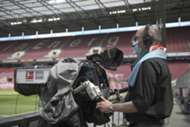
With football yet to restart in India, we take a look at what protocols were implemented by European leagues before the game resumed…
The Covid-19 pandemic has had an unprecedented impact across the sporting world, bringing live action to a virtual standstill around the world. It has been the case in India as well, though the domestic leagues were all but over by the time live sports was suspended in the country.
However, it has affected the senior national team with their preparations for the World Cup qualifiers, rescheduled for October and November, in jeopardy of being delayed.
The India U16 team, set to participate in the AFC U16 Championship in November, might also be affected given that it will take a while before the country lifts the restriction on live sports.
Kiren Rijiju, the Union Minister for Youth Affairs and Sports (MYAS), has indicated to the various sports federations including the All India Football Federation (AIFF) that they should prepare for the resumption of sports, with safety guidelines in place, by August.
It all still depends on the spread of the virus. However, if the green light is given for resuming live action, the AIFF’s priority will be to bring the national teams back into training, months after not stepping out on the field at all.
Of course, the implementation of the same depends on proper safety protocols to prevent the spread of the virus and regular testing measures. The AIFF will want to take a leaf out of what the leagues which have restarted are doing. Let’s take a look at what they are in England, Germany, Italy and the likes.
Obviously, the guidelines will differ from country to country depending on the spread of the virus and the guidelines from the ministry.
In the Premier League, there are active training and testing protocols implemented. Some of the key stage one (return to match fitness) training protocols are:
1. Players have to drive to training in their kit and they must arrive alone in their cars.
2. Their temperature will be monitored at the entrance to the training ground.
3. They will train in a group of five for a maximum of 75 minutes.
4. Tackling and spitting are prohibited.
5. Players must ideally maintain social distancing at all times.
6. If players are injured, they will be treated by a physio wearing Personal Protective Equipment (PPE).
7. After training, players are to drive straight back home.
8. There would be no pre-match handshake and there would be a ban on celebrations where players get close to each other, as far as live match protocols go.
This is apart from the mandatory daily disinfection of everything including the ball, pitch, goalposts, cones, and other training equipment.

There are various testing protocols as well. The players are ideally tested twice a week and before they even begin training, they will have a medical. This is to check for any underlying respiratory or cardiac issues and a Covid-19 test 48 hours before training.
Each club receives up to 80 test kits a week to ensure 40 players and staff can be tested twice a week. All these tests are fully paid for by the Premier League, to the tune of £4 million. The cost factor will also be something the AIFF and the leagues, namely Indian Super League (ISL) and I-League, will need to keep in mind. It will be interesting to see who will bear the costs in India.
The key thing here to note is that players arriving in Britain from overseas will not be allowed into the training ground for 14 days after their arrival.
These protocols are similar in principle for the rest of the European leagues as well including the Bundesliga, Serie A and LaLiga with slight changes. For example, Bundesliga recommended training in groups of seven instead of five (in England) when football resumed.
If we take a look at South Korea, who were one of the earliest countries to restart their domestic football league, the protocols are similarly strict. Social distancing was implemented strictly with players not allowed to speak with teammates, opponents or referees while on the field. Shaking hands was also prohibited. Each player also had his own designated set of water bottles.
Players also had their temperatures checked twice per day, and the Covid-19 guidelines encouraged them to download smartphone apps to report their daily health status to league officials.
There were also protocols implemented, in South Korea as well as the European leagues, in case of a player testing positive. While isolating the player in question and his family for a period of 14 days during which further tests will be conducted is common to all leagues, Korea have also measures to close the stadium the player played in for two days. A government-approved epidemiologist will conduct contact tracing and determine others who need to undergo a 14-day quarantine as well.
These are probably the measures AIFF will also have to put into practice whenever it is that the Government allows them to hold training camps, depending on the guidelines from the ministry.

Be the first to comment